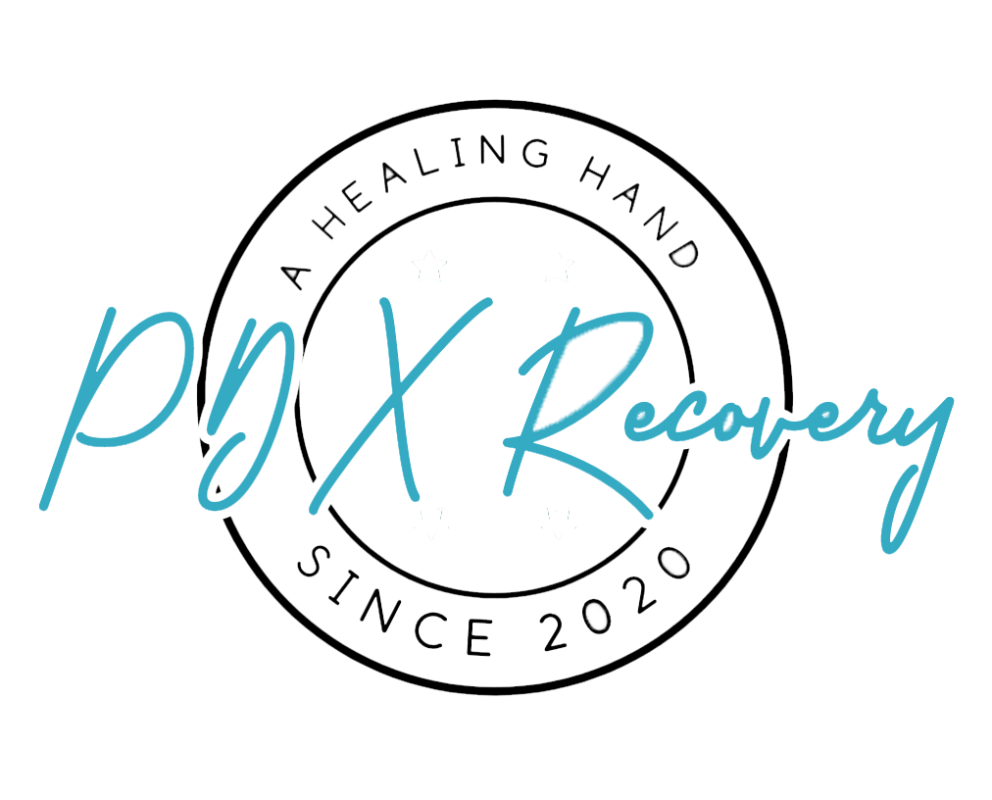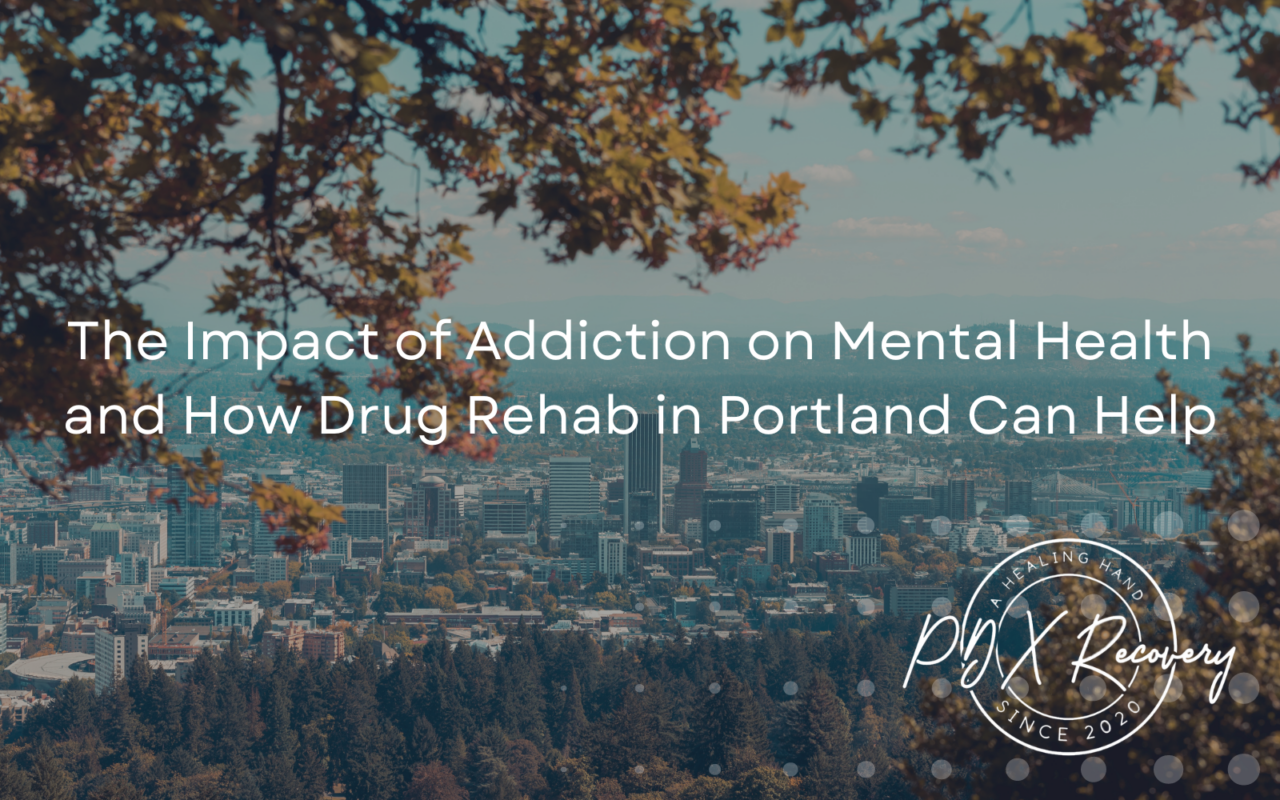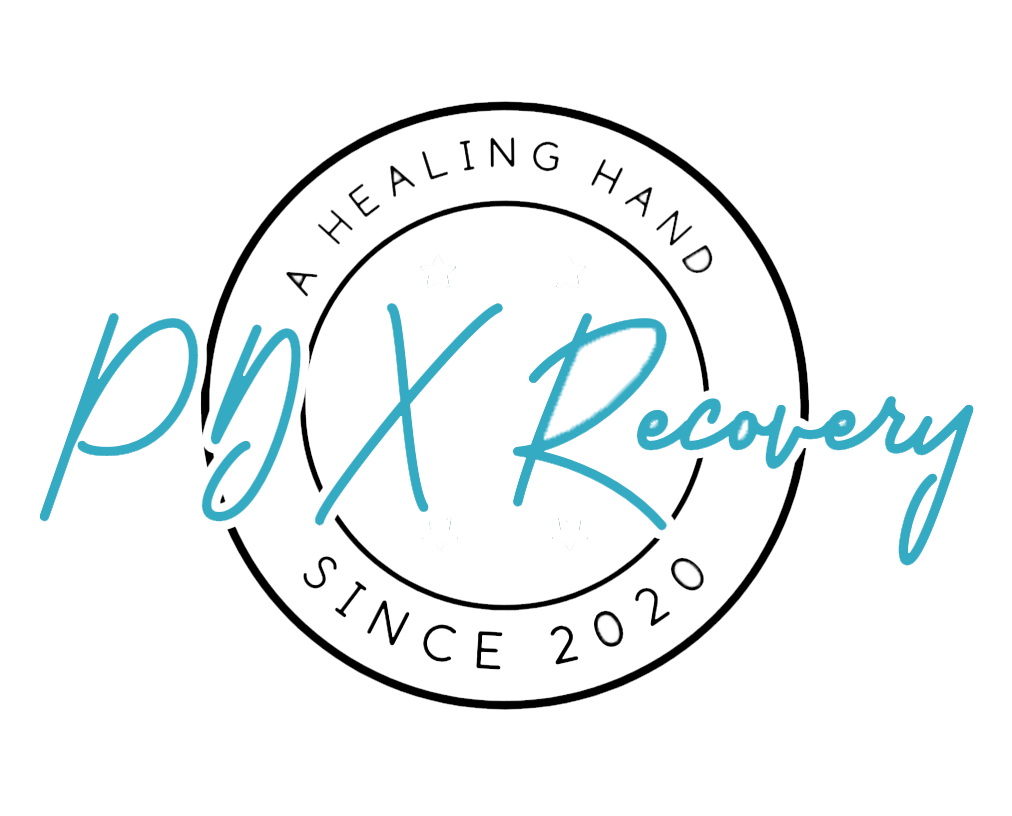Addiction is an overwhelming and complex issue that affects millions of people around the world. It not only takes a toll on the physical health of individuals but also severely impacts their mental well-being. Understanding the deep connection between addiction and mental health is essential for anyone on the path to recovery or supporting someone in need. In this blog, we will explore the relationship between addiction and mental health, discuss the importance of seeking professional help, and highlight how a drug rehab in Portland can be a beacon of hope for those struggling with these challenges.
Understanding Addiction and Its Impact on Mental Health
Addiction is a chronic disease characterized by compulsive drug-seeking behavior and use, despite harmful consequences. It alters brain chemistry, leading to significant changes in mood, behavior, and thought patterns. These changes often result in mental health disorders that exacerbate the already difficult situation.
The process of addiction begins with the voluntary act of taking drugs, but over time, a person’s ability to choose not to do so becomes compromised. Seeking and using the drug becomes compulsive, largely as a result of the effects of prolonged exposure on brain function. This explains the hallmark of addiction: a loss of control in limiting intake of the drug despite adverse consequences.
Addiction doesn’t affect just the individual; it impacts families, workplaces, and communities as a whole. The stigma associated with addiction can also prevent individuals from seeking the help they need, further aggravating their mental health conditions. Treatment often requires comprehensive approaches, including therapy, medication, and support groups, to address both the addiction and its psychological impacts.
Dual Diagnosis Explained
Dual diagnosis refers to the coexistence of both a substance use disorder and a mental health disorder. This condition is more common than many realize, as addiction often leads to mental health issues and vice versa. For instance, someone with chronic anxiety might turn to alcohol or drugs as a form of self-medication, which in turn can exacerbate their mental health condition. Conversely, long-term substance abuse can trigger or worsen mental health disorders like depression or schizophrenia. Individuals with dual diagnosis require comprehensive treatment that addresses both aspects simultaneously to achieve lasting recovery. Without addressing both conditions, the individual may find it extremely challenging to maintain sobriety and mental stability.
The Need for Professional Help
The complexities of dual diagnosis make it clear that professional help is crucial. Treating only one aspect—either addiction or mental health—often leads to relapse and further complications. For example, if only the substance use disorder is addressed, the underlying mental health issue might drive the individual back to substance use as a coping mechanism. Similarly, treating just the mental health disorder without addressing addiction can leave the individual vulnerable to falling back into substance abuse. Comprehensive treatment plans that tackle both issues are essential for effective and sustainable recovery. This often involves a multidisciplinary team of healthcare providers, including psychiatrists, psychologists, addiction specialists, and social workers, all working together to create an individualized treatment plan tailored to the specific needs of the patient.
Effects of Addiction on Mental Health
Substances like drugs and alcohol alter brain chemistry, leading to various mental health disorders. Addiction doesn’t just impact the body; it profoundly affects the mind, creating a complex interplay between mental health and substance use. Here are some of the most common mental health issues associated with addiction:
Depression
Depression is a frequent companion of addiction. Substance abuse can lead to depressive symptoms, and those already battling depression may turn to substances as a form of self-medication, creating a vicious cycle. This cycle can be difficult to break, as the temporary relief provided by substances often leads to deeper levels of depression over time.
Anxiety
Anxiety disorders are another common issue among those struggling with addiction. The constant stress and worry about obtaining and using substances, coupled with the physical effects of withdrawal, can exacerbate anxiety symptoms. Over time, this anxiety can become overwhelming, leading to panic attacks, social isolation, and other significant disruptions in everyday life.
Bipolar Disorder
Bipolar disorder involves extreme mood swings that can be intensified by substance abuse. The highs and lows of bipolar episodes can lead individuals to use drugs or alcohol to cope, further destabilizing their mental health. Substance use can make manic episodes more intense and depressive episodes more debilitating, creating a dangerous loop of instability.
PTSD
Post-traumatic stress disorder (PTSD) is often found in individuals with addiction. Traumatic experiences can lead to substance use as a coping mechanism, while addiction can introduce new traumas, worsening PTSD symptoms. The nightmares, flashbacks, and hypervigilance associated with PTSD can be exacerbated by substance use, making recovery from both conditions more challenging.
Schizophrenia
Schizophrenia is a severe mental health disorder that can be exacerbated by substance abuse. The hallucinations and delusions associated with schizophrenia can be intensified by drugs or alcohol, making treatment even more challenging. Individuals with schizophrenia may use substances to escape or mitigate their symptoms, but this often leads to a worsening of the disorder and complicates their treatment.
How PDX Recovery Can Help
Detoxification
The first step in the recovery process is detoxification, which safely removes harmful substances from the body. PDX Recovery, a drug rehab in Portland, offers medically supervised detox programs that are designed to ensure a safe and comfortable withdrawal process. Medical professionals are on hand 24/7 to monitor and support clients through this critical phase, managing withdrawal symptoms and providing necessary medical interventions.
Individual Therapy
Personalized therapy sessions are a cornerstone of the treatment program at a drug rehab in Portland. These sessions help individuals delve deep into the root causes of their addiction and mental health issues. Therapists work closely with clients to develop effective coping strategies and set achievable goals for recovery. Techniques such as Cognitive Behavioral Therapy (CBT) and Motivational Interviewing (MI) are commonly used to help clients foster a deeper understanding of their behaviors and thought patterns.
Group Therapy
Group therapy provides a supportive environment where individuals can share their experiences and learn from others facing similar challenges. This sense of community can be incredibly empowering during the recovery process. Clients participate in structured group sessions that encourage open discussion, mutual support, and the development of social skills. These sessions often focus on topics such as relapse prevention, communication skills, and building healthy relationships.
Medication Management
For those with dual diagnosis, medication management is a crucial component of effective treatment. PDX Recovery, a drug rehab in Portland, has medical professionals carefully monitor and adjust medications to ensure they effectively address both addiction and mental health symptoms. This includes regular evaluations and adjustments as needed, ensuring medications are working effectively and minimizing any potential side effects.
Dual Diagnosis Treatment
Specialized dual diagnosis treatment programs are designed to address the complexities of co-occurring disorders. These programs integrate mental health care with addiction treatment, offering a comprehensive approach to recovery. Clinicians at PDX Recovery, a drug rehab in Portland, are trained to recognize and treat a wide range of mental health conditions that often accompany addiction, such as depression, anxiety, PTSD, and bipolar disorder.
Holistic Approaches
Holistic therapies such as yoga, meditation, and mindfulness practices are also part of the treatment plan at PDX Recovery, a drug rehab in Portland. These therapies help individuals reconnect with their bodies and minds, promoting overall well-being. By incorporating activities that nurture the body, mind, and spirit, clients can achieve a more balanced and fulfilling recovery. Other holistic options might include art therapy, acupuncture, and nutritional counseling.
Family Therapy
Family therapy is another crucial aspect of the treatment offered at a drug rehab in Portland. Addiction often affects not just the individual, but their loved ones as well. Family therapy sessions aim to rebuild trust, improve communication, and provide education about addiction and mental health issues. This involvement can be instrumental in creating a supportive home environment conducive to long-term recovery.
Personalized Treatment Plans
Every individual’s journey to recovery is unique, and PDX Recovery recognizes this by creating personalized treatment plans tailored to each client’s needs. These plans consider the dual diagnosis status and other factors, such as personal history, strengths, and challenges, to ensure the best possible outcomes. Regular assessments and adjustments to the treatment plan ensure that clients receive the most effective and relevant care throughout their recovery journey.
Aftercare Planning
Recovery doesn’t end after the initial treatment phase at a drug rehab in Portland. PDX Recovery places a strong emphasis on aftercare planning to support clients as they transition back to their everyday lives. This includes creating a comprehensive aftercare plan that may involve ongoing therapy, support groups, and regular check-ins with treatment professionals. By providing continuous support, PDX Recovery helps clients maintain their sobriety and continue to thrive in their recovery.

Addressing Stigma Surrounding Addiction and Mental Health Treatment
Negative stereotypes and discrimination often prevent individuals from seeking the help they need, exacerbating their conditions and leading to a cycle of suffering. It’s essential to challenge these stigmas and promote understanding and support, not just for the affected individuals, but for society as a whole.
Breaking Down Stereotypes
Addiction and mental health disorders are medical conditions, not moral failings or personal weaknesses. Educating the public about the realities of these issues can help dispel harmful stereotypes and encourage empathy. By providing accurate information and sharing personal stories, we can foster a more compassionate perspective. This can lead to greater acceptance and effective approaches to treatment.
Promoting Support
Creating a supportive environment is crucial for those seeking treatment. Friends, family, and the broader community play a vital role in fostering a non-judgmental atmosphere where individuals feel safe to seek help. Support can come in many forms, from listening without judgment to actively participating in recovery efforts. Additionally, support networks and community programs can offer invaluable resources and guidance, helping individuals navigate their paths to recovery with a sense of belonging and encouragement. In this way, we can build a society where seeking help is seen as a strength, not a stigma.
PDX Recovery’s Commitment
PDX Recovery is dedicated to creating a welcoming and non-judgmental space for all clients. They understand the importance of compassion and support in the recovery process and strive to provide a sanctuary for healing. Their team of experienced professionals is committed to offering personalized treatment plans tailored to each individual’s unique needs. By fostering a warm and inclusive environment, PDX Recovery aims to empower clients on their journey to recovery, helping them regain control of their lives and achieve long-term success.
At PDX Recovery, our addiction treatment center provides a safe and supportive space for individuals to heal and recover from addiction and mental health challenges. Our treatment options cater to those needing and not needing round-the-clock care. We also help those seeking support while managing their daily responsibilities. We understand the demands of working professionals and offer a solution that allows them to maintain their job while addressing addiction or mental health concerns.
Our approach to treatment focuses on holistic healing, nurturing the body, mind, and spirit to foster positive behavior changes within individuals and families. We create a secure and respectful environment that honors each person’s unique journey. Our programs go beyond addressing addiction by tackling underlying issues that may have fueled substance abuse.
At PDX Recovery, we take a client-centered approach, integrating complementary therapies like massage and acupuncture to promote balance. As a trusted provider of evidence-based treatments, we are dedicated to supporting individuals in their recovery journey. Our center is a place where you can feel supported, understood, and guided towards lasting recovery. Join us at PDX Recovery to begin your journey towards freedom and healing.
Finding Compassionate Care
Addressing both addiction and mental health is crucial for achieving lasting recovery at a drug rehab in Portland. PDX Recovery offers the comprehensive and compassionate care needed to tackle these complex issues. If you or someone you know is struggling with addiction and mental health, don’t hesitate to seek help. Recovery is possible, and there is always support available.
By understanding the impact of addiction on mental health and promoting a supportive and stigma-free environment, we can work together to create a healthier and happier society. Join us in breaking the stigma and supporting those on their journey to recovery. For more information visit our website https://pdx-recovery.com/ or call us at (971) 256-9087






